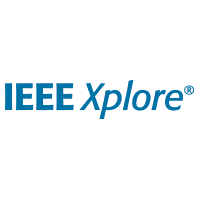Main Point
Generative Artificial Intelligence (GAI) has emerged as a significant field in artificial intelligence research, driven by advancements in computing technologies and the availability of vast amounts of data. GAI finds extensive applications across various domains, including healthcare, where it shows great promise in revolutionizing medical imaging, drug discovery, patient care, medical education, and clinical decision support.
5 Salient Points
Significance of GAI: GAI's rise in prominence is attributed to sophisticated computing technologies and the abundance of data, making it one of the most widely used and trending AI algorithms across industries. The introduction of Generative Pre-trained Transformer 3 (GPT-3) by OpenAI and its subsequent version, GPT-4, marked significant milestones in GAI development, expanding its capabilities in generating textual, visual, and auditory content autonomously.
GAI in Healthcare: The healthcare industry has witnessed a growing adoption of GAI across diverse applications, ranging from precision medicine to drug discovery, medical education, clinical decision support, and digital twins. By analyzing medical images, GAI enhances diagnosis and treatment planning, leading to improved patient outcomes. It aids in drug discovery by simulating drug-target interactions and predicting drug efficacy, potentially reducing the cost and time associated with traditional drug development.
Opportunities in Healthcare: GAI presents numerous opportunities, including personalized medicine that tailors treatment plans according to individual patient conditions, demographics, and medical histories. It facilitates medical education by providing prompt access to relevant medical information and enabling the development of virtual patients for safe medical practice. GAI-powered clinical decision support systems offer treatment suggestions and updated information to healthcare professionals, leading to more informed decision-making and enhanced patient care.
Challenges and Ethical Considerations: Despite the potential benefits, GAI deployment in healthcare raises concerns that must be addressed. Interpretability and transparency are critical aspects that require improvement to build trust in GAI-based decision-making processes. Addressing bias and discrimination in AI algorithms is crucial to ensure fairness and equity in healthcare outcomes. Security and privacy concerns mandate stringent data protection measures to safeguard patient information and comply with ethical standards.
Collaborative Approach: To harness the potential of GAI responsibly and for the benefit of patients, hospitals, pharmaceutical companies, and other stakeholders, a collaborative approach involving healthcare professionals, AI researchers, policymakers, and ethicists is essential. Establishing ethical guidelines, legal frameworks, and robust security measures will ensure the responsible development and deployment of GAI in healthcare.
📝Research Appendixppendix

Generative AI Tools Chart

